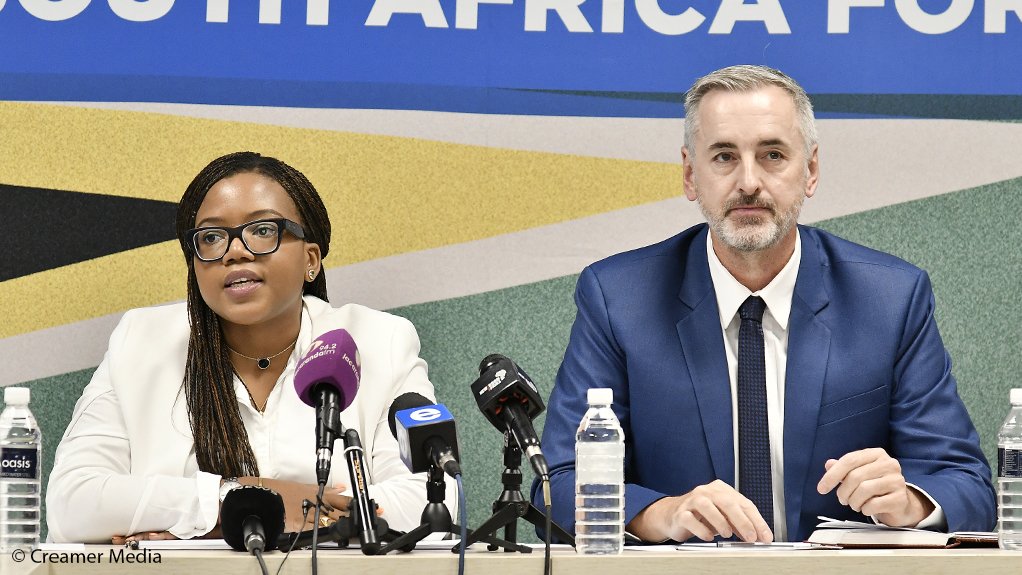Democratic Alliance (DA) policy director Gwen Ngwenya on Wednesday rejected suggestions that the party's new draft document on its value mission statement was silent on the legacy of apartheid because it omitted the word itself.
"It is like saying that something that highlights the genocide of six-million Jews does not address the Holocaust because it does not use the actual word Holocaust," Ngwenya said.
The proposal, released this week, states on the subject of redress for past wrongs: "Our past is littered with myriad injustices including forced removals, job reservation, detention without trial, disparities in education, racial segregation, and concentration camps.
"The consequences of these injustices remain, compounded by poor governance, and are reflected in high rates of poverty, unemployment, and general inequality of opportunity."
Ngwenya said the list of injustices made it plain that the party was detailing the abuses wrought by apartheid.
"It is hard to imagine what else we are referring to," she told African News Agency (ANA).
At least one commentator has suggested that the reference to concentration camps signalled an attempt by the DA to win back voters who defected to the Freedom Front Plus (FFPlus) in the May general elections, where the DA polled 20.8 percent, losing five seats in the National Assembly, while the FFPlus gained six.
Ngwenya also rejected this, pointing to the vast number of black Africans who died in the prisoner of war camps operated by the British during the 1900-1902 Anglo-Boer War.
History books put the figure at more than 14 000 but acknowledge that at the time little effort was made to record the suffering of black internees.
The policy document's definition of the DA's vision of redress for past injustices too is likely to encounter strong debate, both in and outside its ranks.
It states: "Redress is a commitment to reconciliation and to ensuring that inequality of opportunity, which has been the hallmark of our past, is not a feature of the present or the future.
"Policies which tackle inequality of opportunity - including interventions in education, healthcare, the economy, and safety and security will always be central pillars of our programme of action."
It is tricky terrain for a party that has time and again been damaged by infighting over whether to align itself with affirmative action policies or not.
In 2013, Helen Zille, then DA leader, now the party's federal council chairperson, used the term "plane crash" to describe the public fallout between herself and then parliamentary leader Lindiwe Mazibuko on the Employment Equity Bill.
The DA tried unsuccessfully to bring amendments to the bill to save face after voting in favour of it in the National Assembly, only to be rebuked by Zille.
At the time, Zille, who describes herself as a "classical liberal" applied the term "Verwoerdian measures" to the provisions of the bill.
The issue has never quite stopped confounding the party, whose quest to win over significant black voters remains an uphill battle, where they are confronted with a ruling party in the African National Congress that enjoys a majority that, though diminished, remains crushing.
At the party's 2018 federal congress, there was a bruising battle between those viewed as true liberals who argued that "diversity is not equated with demographic representativity" and opponents within the party who wanted to link race to redress. Ngwenya went on record at the time as saying black economic empowerment was simply "not working".
In the end, the liberal faction was happy with the compromise forged. Tensions around race were not absent in the events that saw Mmusi Maimane quit as party leader last year.
Zille's return to a key position in the party, along with Ngwenya's return as policy chief, has spawned accusations that the DA is committed to a policy of non-racialism deeply misplaced in the South African context.
And Maimane's departure has done little to resolve the personal and ideological clashes within the party. Former DA youth leader Mbali Ntuli, with a history of clashing with both Zille and Maimane, has now announced that she plans to stand against John Steenhuisen, who serves as interim leader until the DA's elective federal congress in May.
In a letter announcing her candidacy, she said the party was in "deep crisis".
Expect another round of divisive debate on its value statement when delegates debate it at the party's policy conference in April, a few weeks before choosing a new DA leader.
EMAIL THIS ARTICLE SAVE THIS ARTICLE
To subscribe email subscriptions@creamermedia.co.za or click here
To advertise email advertising@creamermedia.co.za or click here











